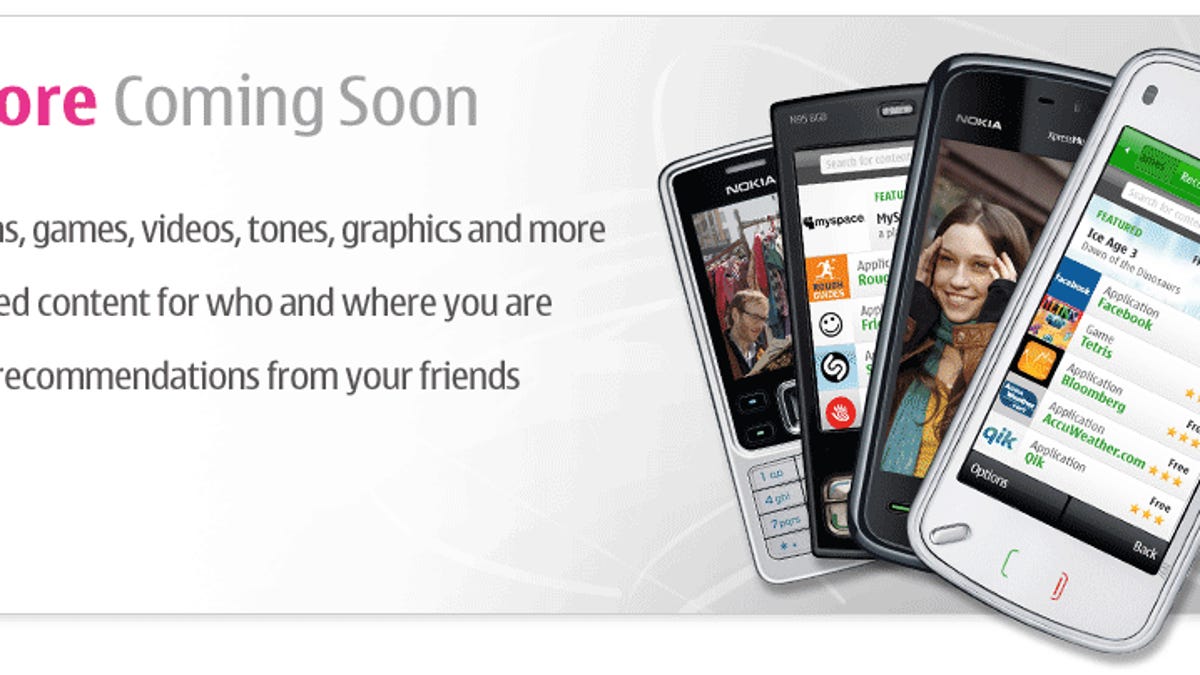U.S. carriers not keen on Nokia's Ovi Store
Nokia's mobile-application store customers in the U.S. will not be able to pay for application downloads on their monthly carrier bills, an option in eight other countries.

Nokia has run into yet another potential hurdle in trying to crack the U.S. market.
The company revealed on Wednesday that its Ovi Store will not have the billing support of U.S. carriers when it launches next month, according to Reuters. Nokia's take on the modern mobile-application store will have the support of carriers in eight countries at launch, but executives had hoped to add the U.S. to that list earlier this year.
Therefore, Nokia users who want to purchase applications from the Ovi Store will have to use a credit card. That's theoretically not a big deal, assuming that Nokia plans on using a system that allows you to store payment information; typing in a 16-digit credit card number and expiration date each time you need to make a small purchase is obviously not that convenient.
The thing is, it's not clear how Nokia plans to handle payments done with a credit card. For example, Research In Motion is using PayPal for its BlackBerry App World, and Google uses Google Checkout for the Android Market.
And one of the big advantages Apple had with the App Store was a well-honed micropayment-processing system in the iTunes Store that was familiar to iPhone users. Setting up a system that can scale as demand grows is no small undertaking, and for that reason, as well as user preference, many companies offering mobile operating systems--including RIM and Microsoft--plan to enlist carrier partners to let charges for application downloads appear on their monthly bill.
Nokia has its own music store, but it's had trouble getting that off the ground in the United Kingdom as a subscription business, and it's not clear how many individual tracks have been sold. That means that the company has yet to really establish a billing relationship with its customers in Europe, let alone the United States.
And that's why carrier support was considered an important part of Ovi Store's chances. But U.S. carriers are busy chasing other alternatives, such as Apple's flirtations with AT&T and Verizon Wireless, Microsoft's plans for a Windows Marketplace for Mobile that involves the carriers, and perhaps their own stores.
With carrier support and strong recognition in Europe, Nokia has a chance to put its own stamp on the new era of mobile applications. But when it comes to figuring out how to expand across the pond, Nokia is still looking for help.